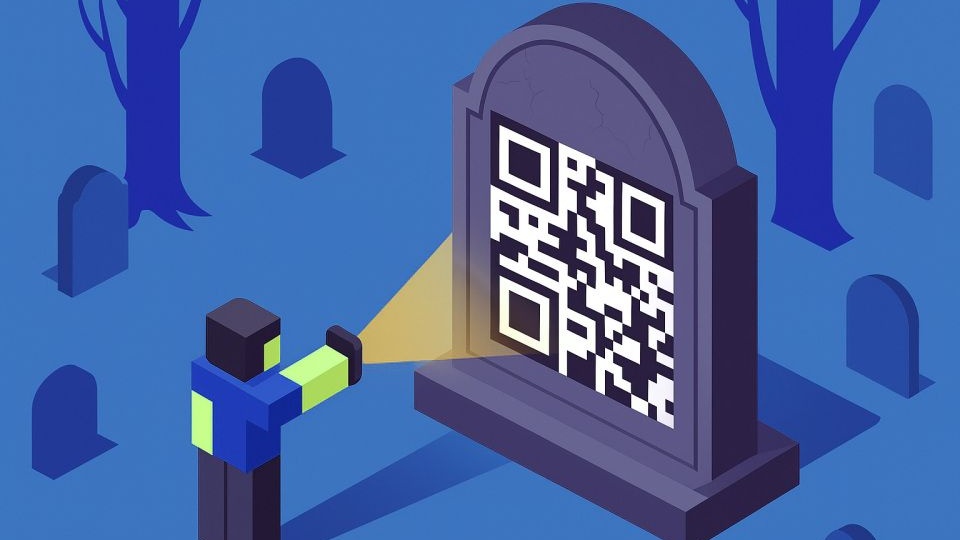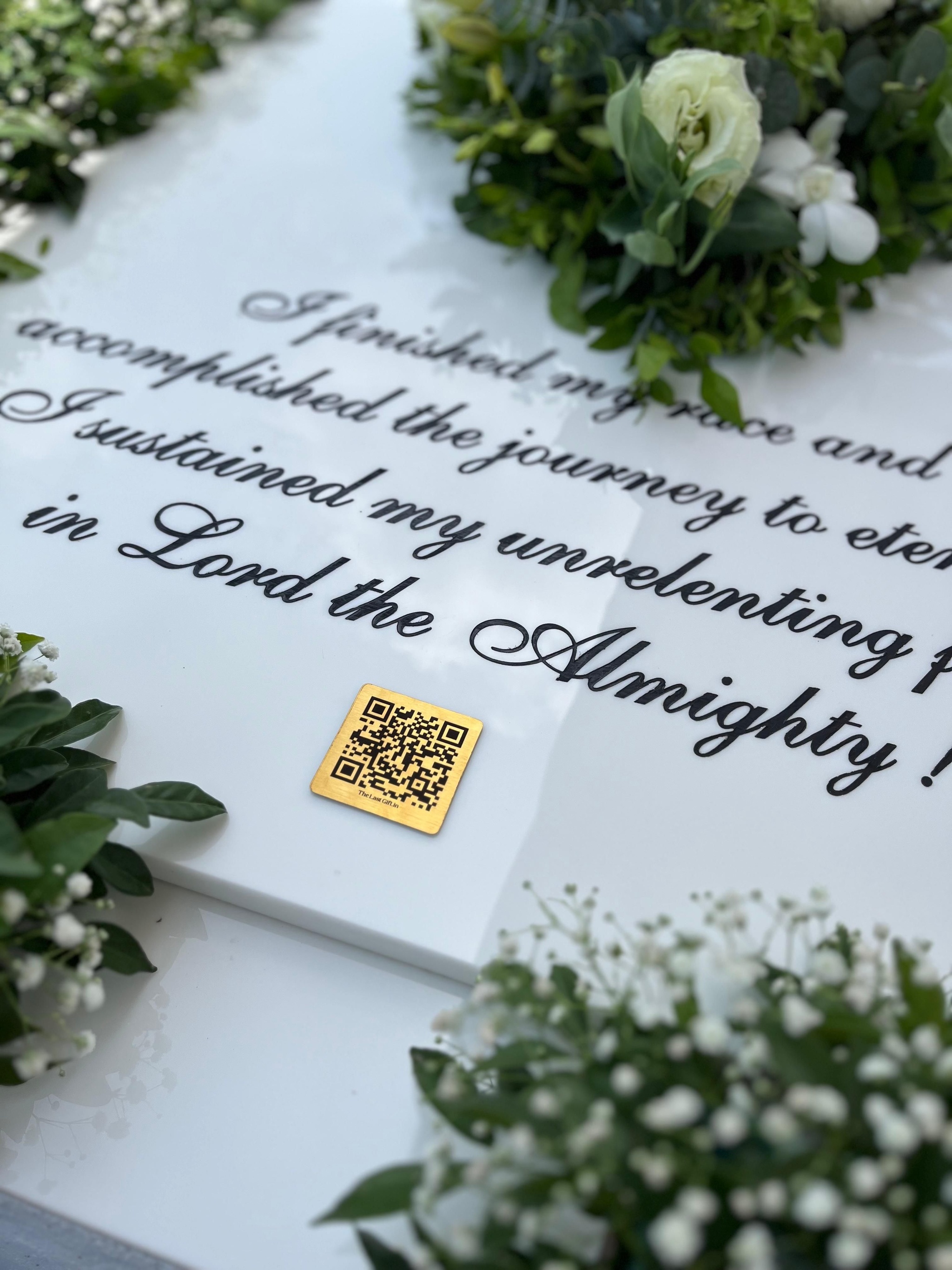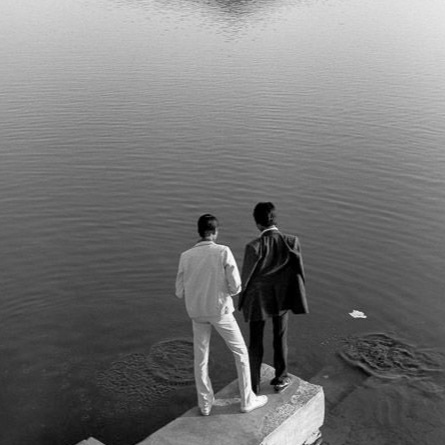Every year, on April 30, Sneha Sundari’s grandfather and his family would go through all their photo albums together on his birthday. But the ritual ended with his demise years ago, and the albums began to accumulate in remote corners of the house. “You know how family albums are sometimes kept on the top shelves of cupboards and then forgotten,” she says.
This year, a few days before what would have been her grandfather’s 80th birthday, the Kochi-based code developer came across an Instagram ad for The Last Gift—a web memorial platform that sells 2x2-inch stainless steel plaques in a golden matte finish that bear a QR code engraved on them. Designed for grieving families and friends to crowdsource photographs and other digital keepsakes, the QR code, which can be stuck on a tombstone or framed at home, is the entry to a digital memorial of sorts.
Inspired by the offering, Sundari joined forces with her mother to work on their family tree. “I learnt new things about him,” she shares. “My grandfather was a retired professor, but I didn’t know he was the HOD of the Physics department in his college in Tamil Nadu, or that he had six siblings—I always thought he had five!” The undertaking quickly snowballed into a family project, with uncles, aunts, and even former students contributing photos and stories.
Once they compiled the information, Sundari contacted the startup, and her grandpa’s memorial site was up within days. The plaque is now framed alongside a photograph of her grandfather in their family prayer room in Chennai.
Even in the age of Facebook and Instagram, it’s entirely possible to live our whole lives without being aware of the many photographs that exist of us. This thought hit Kochi-based serial entrepreneur Stebin Chackalackal Xavier when he visited his childhood friend’s parents a year after his friend’s unexpected death. “They showed me an album of the funeral and I shared pictures and videos I had of him,” he recalls. The pictures evoked mixed feelings in the grieving parents, but they were happy to see them for the first time.
That’s when Chackalackal Xavier realised that a person’s photographs and memories often live scattered among extended family and friends and could offer some comfort to the grieving. “I thought of working on a platform where everyone could contribute pictures or stories to preserve someone’s memories,” he says.





